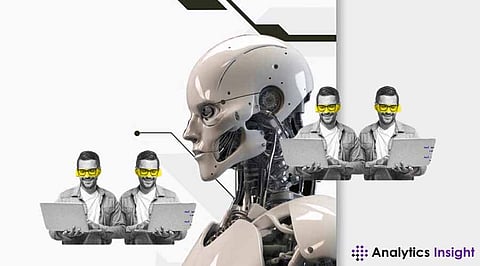

What companies are driving the next wave of robotics innovation? From warehouse automation to autonomous agriculture, the robotics sector is on an impressive growth trajectory. Valued at $39.54 billion in 2023, the global robotics market is projected to reach a staggering $134.64 billion by 2031, fueled by advancements in AI, machine learning, and autonomous systems. Companies across industries are deploying robotics to solve labour shortages, streamline operations, and improve safety in areas where human tasks are physically taxing or repetitive.
In 2024, key robotics engineering firms are setting new standards for efficiency and precision. Here’s a look at ten pioneering companies transforming how industries work today.
Rapid Robotics specializes in robotic systems that support manufacturing and logistics. Its flagship product, Rapid iD, enables robots to perform complex end-of-line tasks, which reduces labour demands and enhances operational speed. With significant partnerships, including collaborations with Fortune 100 companies, Rapid Robotics is redefining manufacturing automation by lowering manual data entry and optimising workflows.
Mytra’s AI-driven platform streamlines warehouse operations with advanced software, enabling efficient inventory management and route optimization. Since emerging from stealth with $78 million in funding, Mytra has already impacted major distribution centres. Its solutions have demonstrated significant savings in labour hours and enhanced supply chain flexibility by allowing warehouse staff to focus on strategic tasks instead of repetitive manual work.
GrayMatter Robotics focuses on automating labour-intensive tasks in high-mix production lines, addressing challenges like repetitive stress injuries and hazardous environments. Using AI-powered robots, the company automates processes such as sanding, polishing, and grinding, reducing cycle times by up to 75%. GrayMatter’s GMR-AI™ technology ensures adaptability in high-demand production, offering 95-98% availability across sectors such as aerospace and consumer products.
Known for its humanoid robot, Digit, Agility Robotics addresses high turnover and safety concerns in supply chains. Digit performs physically demanding tasks, such as bulk material handling, while Agility’s platform, Agility Arc, manages fleet coordination, facility mapping, and real-time operational data. Partnerships with companies like Amazon signal the growing role of humanoid robots in improving warehouse productivity and safety.
Fox Robotics revolutionizes logistics with its autonomous forklifts, or FoxBots, which automate the loading and unloading process in warehouses. These AI-enabled forklifts use machine vision and dynamic planning to unload up to 25 pallets per hour without human intervention. This shift enables workers to focus on higher-value roles, exemplified at Walmart distribution centres, where FoxBots have boosted productivity and transformed workforce dynamics.
Monarch Tractor introduced the world’s first driver-optional, fully electric tractor designed for sustainable and autonomous farming. Its MK-V model can plough, mow, and perform various agricultural tasks while gathering data for real-time decision-making. With over 400 units deployed, Monarch’s technology has reduced CO2 emissions and significantly impacted sustainable farming practices, making it a standout in agricultural robotics.
Reliable Robotics has developed autonomous flight systems for aircraft like the Cessna Caravan, automating everything from takeoff to landing. This innovative technology addresses pilot shortages and enhances safety, particularly in cargo operations. Reliable Robotics’ redundant systems mitigate common aviation risks, making flights safer and offering a promising future for automation in commercial aviation.
Locus Robotics specializes in Autonomous Mobile Robots (AMRs) for warehouse settings, with robots like the LocusBot that work alongside human workers. These AMRs increase handling efficiency and minimize labour requirements, seamlessly integrating with existing warehouse infrastructures. Locus Robotics recently hit the milestone of three billion picks in its global deployments, underscoring its role in transforming order fulfilment.
Geekplus brings sophisticated AMRs to logistics with solutions like its Shelf-to-Person and Pallet-to-Person robots. Debuting at Modex 2024, Geekplus showcased the tallest mobile order fulfilment robot, ideal for optimizing vertical storage in high-ceiling warehouses. Its systems reduce the need for infrastructure investments, making automation accessible for a wide range of facilities.
Established in 2022, Figure AI has quickly become a leader in humanoid robotics with Figure 01, a robot designed for industrial tasks like assembly, inventory management, and sorting. Figure 01 is already in use in manufacturing, warehousing, and retail, providing a versatile solution for physically demanding tasks. Figure AI’s partnerships with OpenAI and Microsoft drive continuous improvement in autonomous capabilities, allowing Figure 01 to handle increasingly complex tasks.
The robotics sector is experiencing exponential growth as companies push the boundaries of AI, machine learning, and automation. From Rapid Robotics’ end-of-line automation solutions to Monarch Tractor’s sustainable farming models, these companies address critical industry needs like labour shortages, supply chain disruptions, and the growing demand for environmentally conscious solutions.
Innovations in AI, especially when integrated with advanced product lifecycle management (PLM) systems, are reshaping how industries approach production and supply chains. Robotics firms’ cutting-edge solutions are setting a new pace for manufacturing, logistics, and agriculture, enabling smarter, faster production processes. The next few years promise even greater advances, with robotics poised to take on a pivotal role in global industries.
